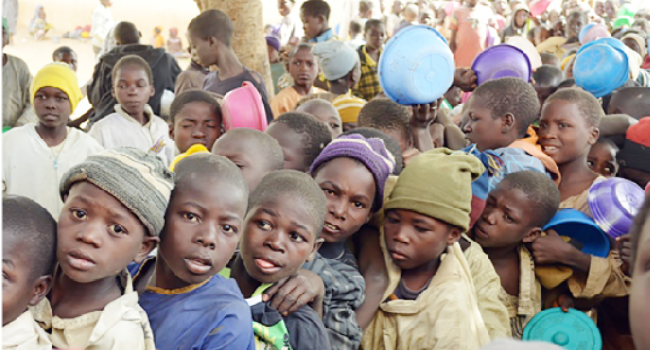News
Under Buhari, Nigeria”s out-of-school children now 20m, northern states lead —UNESCO

The United Nations Educational, Scientific and Cultural Organisation, (UNESCO), has raised the alarm as the number of out-of-school children in Nigeria hits 20 million from the 12.3 million recorded in 2021.
The UN agency, in a data published on Thursday gathered from an analytical statistics organisation, SBMorgan Intelligence, said many more Nigerian children are dropping out of school due to poverty, harsh economic conditions and insecurity being experienced under President Muhammadu Buhari.
UNESCO said a new and improved methodology was used to arrive at the latest figures which sees “244 million children and youth between the ages of 6 and 18 worldwide (who) are still out of school”, with India, Nigeria and Pakistan having the highest figures of out-of-school children globally.
“Poverty, lack of schools, insecurity and tradition, among others, are the major factors pushing many children out of school,” the report said.
“Daily, during school hours, many underage children who are supposed to be in school, are seen in traffic selling sachet water and assorted drinks; in mechanic workshops and markets learning trade.
“Some beg for alms in between traffic, others carry loads for a fee in markets, while many are on the streets looking haggard, with some at bus stops ready to snatch bags from commuters.
READ ALSO:Nigerian govt commends UNESCO’s role in repatriation of artifacts
“The ugly trend is despite the provisions of Article 28 of the Convention on the Rights of the Child, to which every country is a signatory, including Nigeria.
“The Article states: “States Parties recognize the right of the child to education and with a view to achieving this right progressively and on the basis of equal opportunity,” the report added.
According to the agency, Nigeria accounts for more than one in five out-of-school children anywhere in the world.
It reported that only 67 per cent of eligible children take up a place in primary school.
“If a child misses school for even a short time, there is only a low chance, only about 25 per cent, that the child will ever return. In this regard, girls suffer more than boys in terms of missing out on education.
“In the North-East of Nigeria, only 41 per cent of eligible girls receive primary education. The figure is 47 per cent in the North-West. Social attitudes also impact negatively education rates, especially in northern Nigeria.
“In North-eastern and North-western states, 29 per cent and 35 per cent of Muslim children, respectively, attend Qur’anic schools, which do not include basic education skills, such as literacy and numeracy. These children are officially considered out of school by the government,” the report said.
Join the conversation
Support Ripples Nigeria, hold up solutions journalism
Balanced, fearless journalism driven by data comes at huge financial costs.
As a media platform, we hold leadership accountable and will not trade the right to press freedom and free speech for a piece of cake.
If you like what we do, and are ready to uphold solutions journalism, kindly donate to the Ripples Nigeria cause.
Your support would help to ensure that citizens and institutions continue to have free access to credible and reliable information for societal development.
























